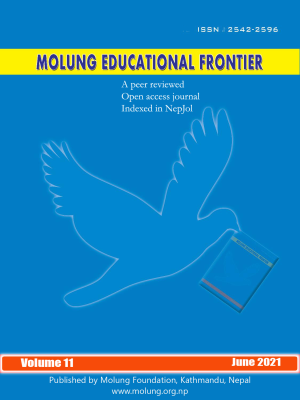Exploring Intersectionality: Theoretical Concept and Potential Methodological Efficacy in the Context of Nepal
DOI:
https://doi.org/10.3126/mef.v11i0.37851Keywords:
intersectionality, women, Dalit, systemic discrimination, power and politics, NepalAbstract
This article engages in theoretical discussions of intersectionality on such issues as: how does Kimberle Crenshaw's intersectionality theory function in various forms of social divisions, and how do various scholars respond to it? Why is intersectionality theoretically and methodologically critical to examining Nepali political and social contexts, especially on women and Dalit's issues? This article examines the overview of intersectional theoretical standpoints explicitly based on Crenshaw's ideas and how it problematizes political practices of domination and discrimination against minority groups in societies today. Rather than providing an empirical and positivist approach to findings, this write-up offers a theoretical framework that helps conceptualize and utilize it in examining power exercise and politics in the Nepali context. It emphasizes discourse analysis to explore the systemic discrimination and the genealogy of structural violence to moot debates about central and marginal subjects concerning women and Dalit issues in Nepal.
Downloads
Downloads
Published
How to Cite
Issue
Section
License
© Molung Foundation




